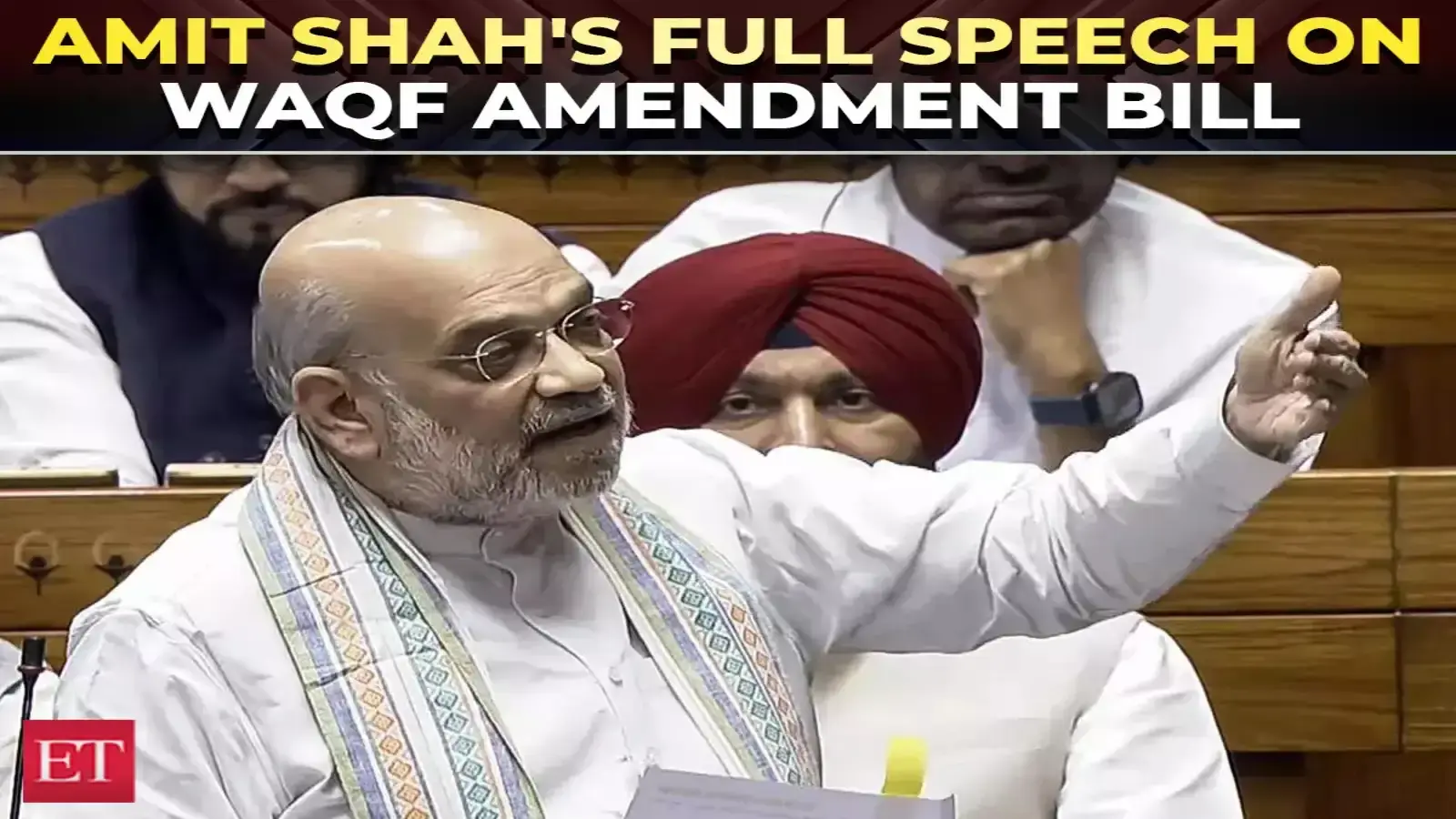02-apr-2025, 02:12 PM, The Waqf Amendment Bill, 2024, introduced in the Lok Sabha by Union Minority Affairs Minister Kiren Rijiju, aims to reform the management and administration of Waqf properties across India. Emphasizing the bill’s significance, Rijiju stated that it is being introduced “for the benefit of the country,” addressing longstanding issues associated with Waqf properties.
Understanding The Waqf Amendment Bill and Its Importance
A Waqf is a charitable endowment under Islamic law, wherein a person dedicates a portion of their property for religious or charitable purposes. These properties are intended to serve the community indefinitely, with the income generated used for purposes like building mosques, schools, hospitals, and supporting the underprivileged. The management of these properties is overseen by Waqf Boards established in each state.
Key Provisions of the Waqf Amendment Bill, 2024
The proposed amendments introduce several significant changes:
- Definition and Declaration of Waqf: The bill clarifies that only individuals practicing Islam for at least five years and owning the property can declare a Waqf. This aims to prevent unauthorized declarations and ensure genuine endowments.
- Survey and Registration: The responsibility for surveying Waqf properties is assigned to the District Collector or an appointed deputy, streamlining the process and ensuring accurate records. Additionally, all Waqf properties must be registered in a central database within six months of the law’s commencement, promoting transparency.
- Composition of Waqf Boards: The bill proposes a more inclusive composition for Waqf Boards and the Central Waqf Council, incorporating non-Muslim members and ensuring representation of Muslim women. This aims to bring diverse perspectives and enhance governance.
- Tribunal Reforms: The amendment restructures the Waqf Tribunal to consist of two members and allows appeals against its decisions to be made to the High Court within ninety days, ensuring a more robust legal framework.
Government’s Perspective
Minister Kiren Rijiju has highlighted that the bill seeks to address mismanagement and corruption issues plaguing Waqf properties. He emphasized that some leaders, including religious figures, have misled the Muslim community regarding the bill’s intentions. Drawing parallels to the misconceptions surrounding the Citizenship Amendment Act (CAA), Rijiju stated that similar unfounded fears are being propagated about the Waqf Amendment Bill. He asserted that many opposition leaders privately acknowledge the necessity of the bill but oppose it publicly for political reasons.
Opposition’s Stance
The bill has faced criticism from various opposition parties and organizations. Concerns have been raised about provisions allowing non-Muslim members in Waqf Boards and granting District Collectors the authority to determine property ownership in disputes. Critics argue that these changes could undermine the autonomy of Waqf institutions and are fundamentally against constitutional provisions.
Support from Political Allies
Despite opposition, key allies of the ruling party, such as the Jana Sena Party (JSP), have extended support to the bill. JSP President Pawan Kalyan directed his party’s MPs to vote in favor, believing that the amendments will benefit the Muslim community by streamlining the management of Waqf properties.
Parliamentary Proceedings and Debate
The Lok Sabha has allocated eight hours for the debate on the Waqf Amendment Bill, with possibilities of extension. Both the ruling National Democratic Alliance (NDA) and the opposition INDIA bloc have issued whips to their MPs to ensure full participation. The NDA appears to have the requisite numbers to pass the bill, with support from allies like the Telugu Desam Party (TDP) and Janata Dal (United) (JD(U)).
Implications of the Waqf Amendment Bill
If enacted, the Waqf (Amendment) Bill, 2024, will bring about significant changes:
- Enhanced Transparency: Mandatory registration and centralized record-keeping will reduce disputes and mismanagement.
- Inclusive Governance: Diversifying Waqf Boards’ composition aims to improve decision-making and accountability.
- Legal Clarity: Clear definitions and streamlined processes for declaring and managing Waqf properties will minimize ambiguities and potential for misuse.
Conclusion
The introduction of the Waqf (Amendment) Bill, 2024, marks a pivotal moment in the management of Waqf properties in India. While the government emphasizes the bill’s role in promoting transparency and efficiency, opposition voices caution against potential overreach and the dilution of Waqf institutions’ autonomy. As the parliamentary debate unfolds, it remains to be seen how these amendments will shape the future of Waqf property administration in the country.





